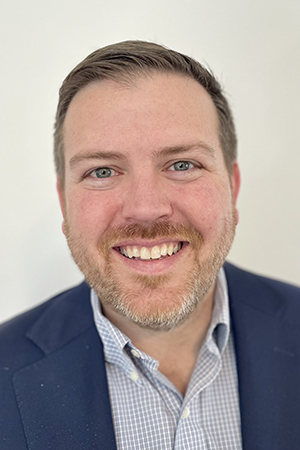
Seamus Hughes
- Senior Research Faculty and Policy Associate
- NCITE
Additional Information
Bio
Seamus Hughes is a leading voice in the field of counterterrorism and extremism research whose career spans journalism, academia, and government.
In his career, Hughes worked at the National Counterterrorism Center (NCTC), serving as a lead staffer on U.S. government efforts to implement a national terrorism prevention strategy. He regularly led engagements with communities across the country, provided counsel to civic leaders after high-profile terror-related incidents, and met with families of individuals who joined terrorist organizations. Hughes created a groundbreaking intervention program to help steer individuals away from violence through non-law enforcement means and worked closely with the FBI Joint Terrorism Task Force, fusion centers, and U.S. Attorney Offices. Prior to his work for NCTC, Hughes served as the senior counterterrorism advisor for the U.S. Senate Homeland Security and Governmental Affairs Committee. Hughes has authored numerous legislative bills, including sections of the 9/11 Commission Recommendations Act and the Special Agent Samuel Hicks Families of Fallen Heroes Act. He organized over a dozen congressional hearings on the threat of homegrown violent extremism, led fact-finding delegations to various European and Middle Eastern countries, and has testified before the U.S. Congress on multiple occasions. Hughes helped direct a academic research center at George Washington University for nearly a decade.
Additionally, Hughes is a research journalist at the New York Times. In 2022, Hughes was part of a New York Times team that won a Pulitzer Prize for National Reporting for stories on law enforcement in America. Hughes regularly provides commentary to media outlets including the New York Times, Washington Post, Wall Street Journal, Los Angeles Times, The Atlantic, CNN, MSNBC, Fox News, BBC, PBS, and CBS’ 60 Minutes. In 2023, Washingtonian magazine named him one of the country’s most influential voices on national security.
Hughes has also been an adjunct faculty member for George Washington University and Georgetown University teaching numerous classes on terrorism and U.S. government policy making.
Research Interests
Terrorism, homegrown violent extremism, and countering violent extremism
Education
B.A. Political Science and Government, University of Maryland College Park
Selected Publications
The Travelers: American Jihadist in Syria and Iraq, 2018
The Fractured Threat to the Homeland, 2019
Homegrown: ISIS in America, 2020
A Sea Change in Communication, Lawfare, 2021
Understanding Threats to Public Officials, 2023
Additional Information
Bio
Seamus Hughes is a leading voice in the field of counterterrorism and extremism research whose career spans journalism, academia, and government.
In his career, Hughes worked at the National Counterterrorism Center (NCTC), serving as a lead staffer on U.S. government efforts to implement a national terrorism prevention strategy. He regularly led engagements with communities across the country, provided counsel to civic leaders after high-profile terror-related incidents, and met with families of individuals who joined terrorist organizations. Hughes created a groundbreaking intervention program to help steer individuals away from violence through non-law enforcement means and worked closely with the FBI Joint Terrorism Task Force, fusion centers, and U.S. Attorney Offices. Prior to his work for NCTC, Hughes served as the senior counterterrorism advisor for the U.S. Senate Homeland Security and Governmental Affairs Committee. Hughes has authored numerous legislative bills, including sections of the 9/11 Commission Recommendations Act and the Special Agent Samuel Hicks Families of Fallen Heroes Act. He organized over a dozen congressional hearings on the threat of homegrown violent extremism, led fact-finding delegations to various European and Middle Eastern countries, and has testified before the U.S. Congress on multiple occasions. Hughes helped direct a academic research center at George Washington University for nearly a decade.
Additionally, Hughes is a research journalist at the New York Times. In 2022, Hughes was part of a New York Times team that won a Pulitzer Prize for National Reporting for stories on law enforcement in America. Hughes regularly provides commentary to media outlets including the New York Times, Washington Post, Wall Street Journal, Los Angeles Times, The Atlantic, CNN, MSNBC, Fox News, BBC, PBS, and CBS’ 60 Minutes. In 2023, Washingtonian magazine named him one of the country’s most influential voices on national security.
Hughes has also been an adjunct faculty member for George Washington University and Georgetown University teaching numerous classes on terrorism and U.S. government policy making.
Research Interests
Terrorism, homegrown violent extremism, and countering violent extremism
Education
B.A. Political Science and Government, University of Maryland College Park
Selected Publications
The Travelers: American Jihadist in Syria and Iraq, 2018
The Fractured Threat to the Homeland, 2019
Homegrown: ISIS in America, 2020
A Sea Change in Communication, Lawfare, 2021
Understanding Threats to Public Officials, 2023